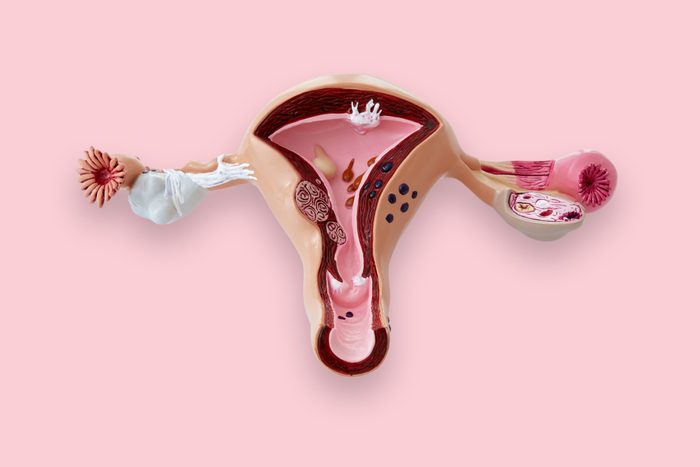
The silent killer
One in 78 women will develop ovarian cancer in her lifetime yet despite its prevalence, this disease is often called a silent killer. It’s the fifth leading cause of cancer-related deaths in women ages 35 to 74, according to the National Ovarian Cancer Coalition. So what makes it so silent? A routine Pap smear doesn’t pick up on this cancer, which means it can go undetected. In addition, ovaries are deep in the abdomen, making it difficult to detect cancerous cells inside them or on their outer layer, at least within the disease’s earliest stages.
Symptoms include abdominal bloating, weight loss, quickly feeling full, constipation (or other changes in bowel routine), and frequently needing to urinate. These are all relatively common symptoms of many other things that aren’t ovarian cancer, so they can be easy to miss.
Treatment typically involves a combination of surgery and chemotherapy. The extent of treatment depends on how far the disease has progressed by the time a patient has been diagnosed and, as with any medical condition, early detection is key. The five-year survival rate for ovarian cancer is 48 percent, according to the Ovarian Cancer Research Alliance.
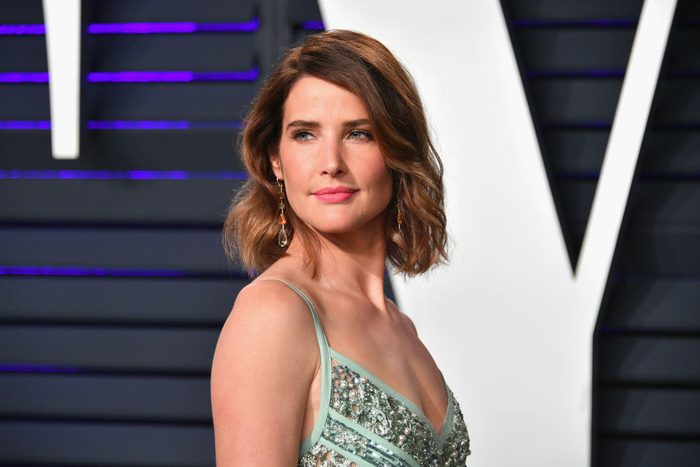
Cobie Smulders
At 25 years old How I Met Your Mother actress Cobie Smulders was given life-changing news: a diagnosis of “borderline” cancer, which she describes to Parade as meaning it wasn’t quite malignant and it wasn’t quite benign. Smulders had several surgeries to remove the cancer. Now she shares her experience with ovarian cancer to raise awareness about the disease and the need for early intervention. (These are the 14 things ob-gyns really wish you understood about ovarian cancer.)
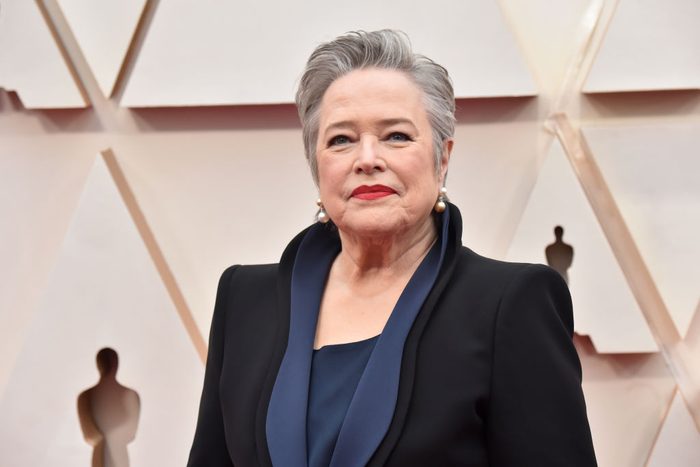
Kathy Bates
Movie and television star Kathy Bates, whose list of credits include Misery and Titanic, was diagnosed with stage 1 ovarian cancer at age 55. She quickly had surgery and underwent nine months of chemotherapy. Bates returned to work immediately, at the time choosing to stay quiet about her health. Today she is vocal about her experience and works with campaigns like Stand Up To Cancer to raise awareness and funding for research.
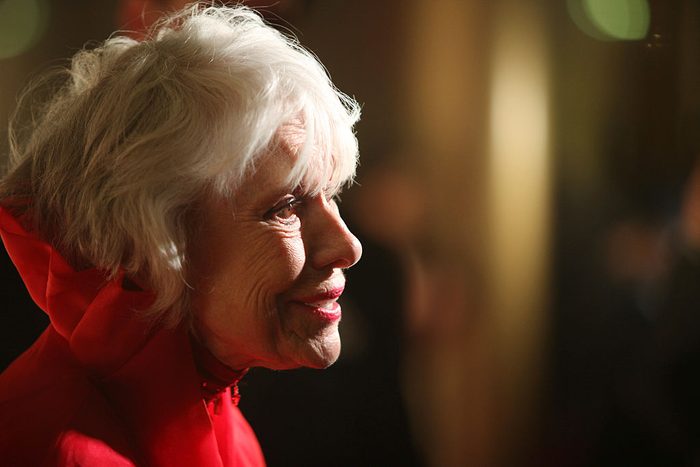
Carol Channing
Broadway and film icon Carol Channing was diagnosed with ovarian cancer while touring with a production of Hello, Dolly! The show biz vet refused to let the disease put a pause on her career, and, would fly to New York once a week for cancer treatment before returning to wherever the show was currently based. Channing passed away in 2019 at age 97, from natural causes.
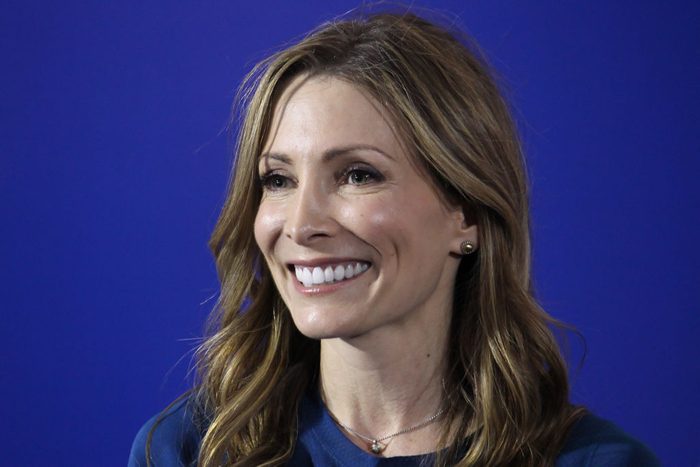
Shannon Miller
Olympian Shannon Miller told the American Cancer Society she drew upon her rigorous gymnastics training while going through treatment for ovarian cancer. Diagnosed at age 33, Miller had a lot to fight for, including her 1-year-old son Rocco. She underwent surgery to remove the tumor and then followed that with nine weeks of chemotherapy in 2011. She now uses her public platform to raise awareness of ovarian cancer and share her story.
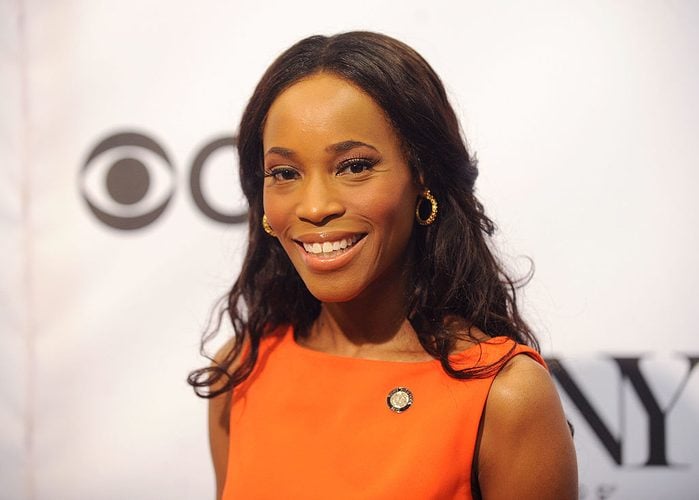
Valisia LeKae
Broadway star Valisia LeKae of Motown the Musical was riding high in her dream career when she learned of her ovarian cancer diagnosis in 2013. An ovarian cyst was discovered during a routine exam, but LeKae had no symptoms, so she planned to have the cyst removed and continue to perform. But LeKae tells Look Good Feel Better that her condition was worse than originally thought. She had clear cell carcinoma of the ovary. After two surgeries and several rounds of chemotherapy, LeKae was pronounced cancer-free. (Despite an uptick in education about the disease, there are still plenty of myths about ovarian cancer you need to know.)
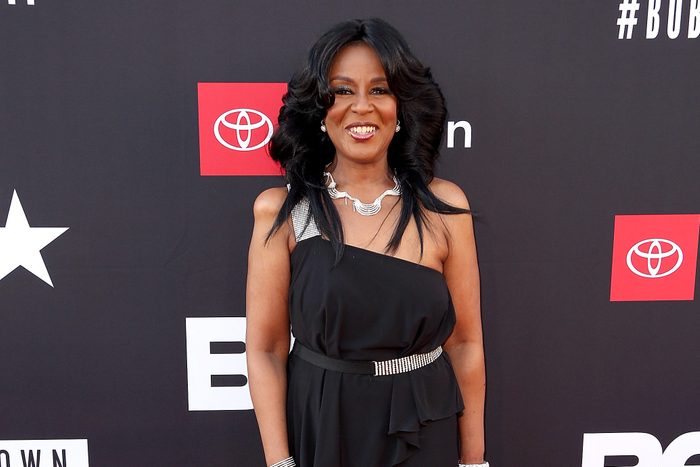
Angela Winbush
Diagnosed with ovarian cancer in 2002, R&B singer Angela Winbush is a true survivor. The St. Louis native has been vocal about her battle with the disease, even requesting footage of her toughest moments spent in Barnes-Jewish hospital be included in a TV One docu-series called Unsung. She told the St. Louis Post-Dispatch: “For me, the only reason I think I’m alive is so I could save other lives. It’s not about me looking cute all the time. It’s about my life being spared so I can show people they can make it through a tough situation.”
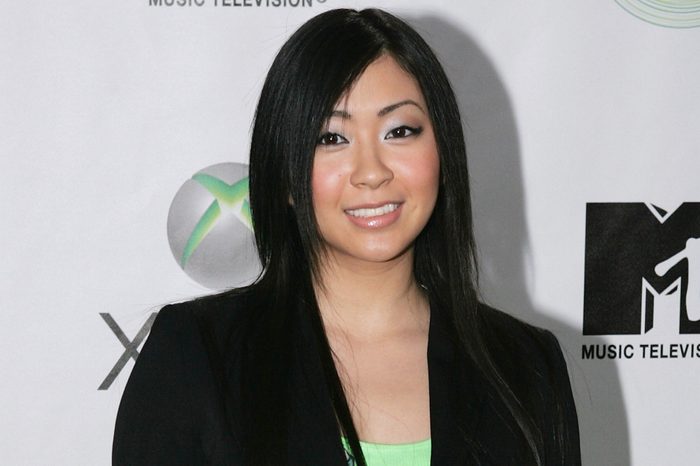
Hikaru Utada
She may not be a household name in the United States, but pop singer Hikaru Utada made a splash on the music scene in Japan. According to The Japan Times, the songstress was just 19 years old when doctors discovered a benign tumor on one of her ovaries in 2002. She has reportedly been in remission after undergoing surgery and treatment. (These are the 15 cancer symptoms women are most likely to ignore.)
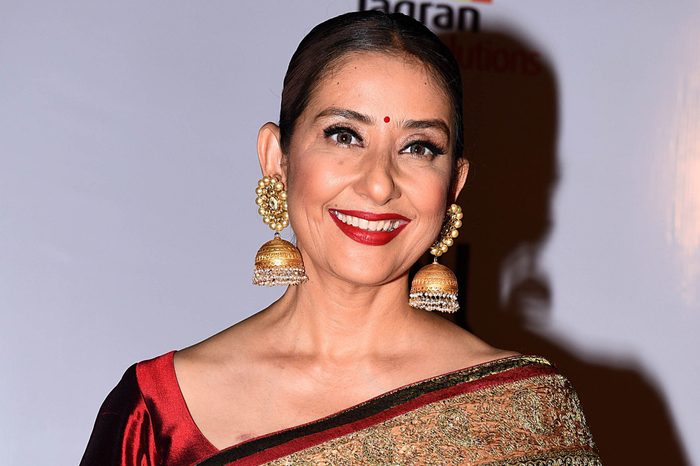
Manisha Koirala
Bollywood star Manisha Koirala has more than 80 professional acting credits to her name, but perhaps the actress’s most personal project is her book Healed: How Cancer Gave Me a New Life. The book chronicles her difficult battle with ovarian cancer, which began in 2012. After her diagnosis Koirala took a five-year break from her career to focus inward, noting that she feels she previously took her life for granted.
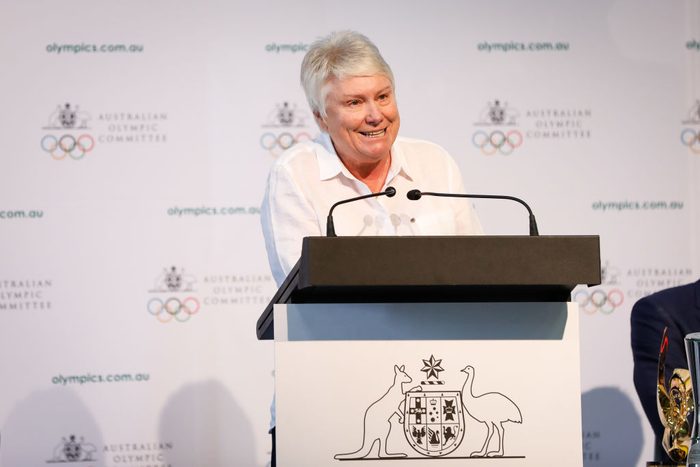
Raelene Boyle
Olympian Raelene Boyle was a fierce competitor on the track, winning her first silver medal at the 1968 games in Mexico City. The Australian athlete used that fighting spirit when she was diagnosed with ovarian cancer not once but twice, undergoing treatment to battle the disease both times. Prior to these diagnoses, in 1996, she had been diagnosed with breast cancer, overcoming that as well. (Here are 6 simple changes you can make to prevent breast cancer.)
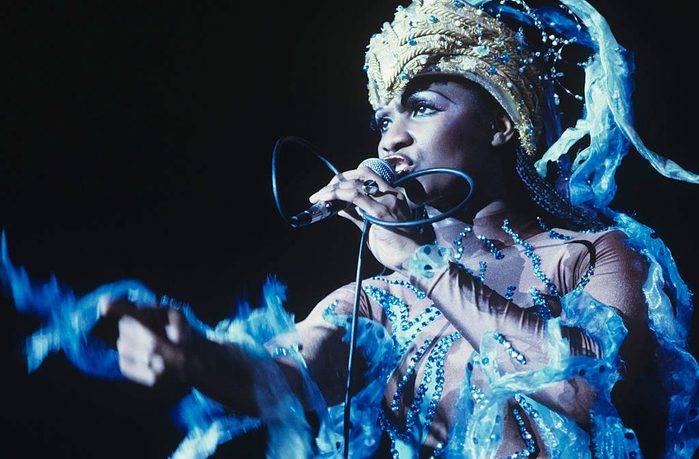
Marcia Barrett
British singer Marcia Barrett noticed something didn’t feel quite right when she felt sharp pains in her abdomen. While tests displayed abnormal cells, doctors weren’t initially able to diagnose her with ovarian cancer. According to an interview with Express, it took a year before the disease was finally detected. To treat the condition Barrett had her ovaries removed and received both chemotherapy and radiotherapy.
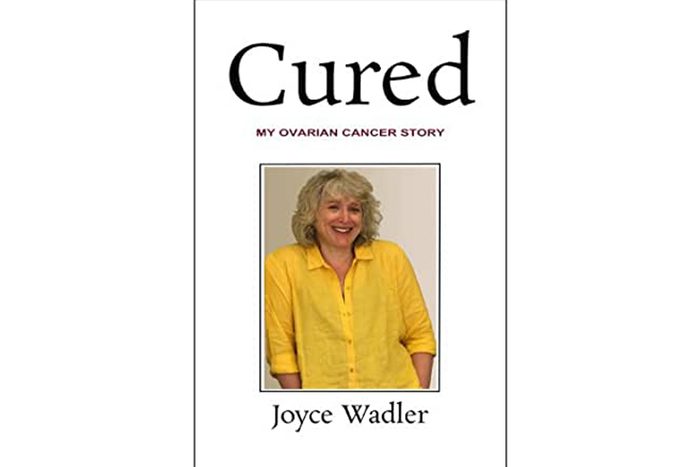
Joyce Wadler
Author and New York-based reporter Joyce Wadler has overcome both ovarian cancer and breast cancer, sharing these experiences in books like Cured, My Ovarian Cancer Story. Wadler also uses her platform to encourage other women to schedule routine health exams and educate themselves on warning signs that something may be amiss.
